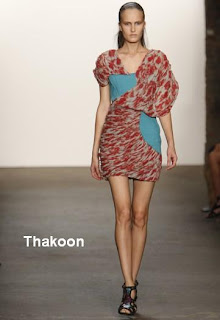 Rock is in on this. His daughter asked him, “Daddy, how come I don't have good hair?” which led him on a journey (which will be his new movie-Good Hair) to find the answer.
Rock is in on this. His daughter asked him, “Daddy, how come I don't have good hair?” which led him on a journey (which will be his new movie-Good Hair) to find the answer.
Now why would I really find this fascinating?
Because, as it said in the Yahoo! Article, “hair has classification power.” Think about it? I think this discussion has more to do than just with African-American women’s hair, though those thoughts, truths, and history are extremely intriguing to me. It has to do with every woman.
Hair is an important part of every girl’s life. It matters! Every woman’s hair, no matter the color of skin or hair, has a true significance in her life at some point or another. She could love it or hate but at that point it made a difference on how it looked and affected her.
Colors and textures are stereotyped. If you are blonde, you are dumb. Brunettes can be boring. Red heads have a temper. Curly hair means you are wild. And “braids, twists, afros, etc”[Yahoo] all come with their own stereotypes. “From long and straight to short and kinky - and, of course, good and bad - these terms become shorthand for desirability, worthiness and even worldview.” [Yahoo] Hair defines some women. Tyra was known for her different weaves as much as her modeling. Jennifer Aniston could not snip a strand without it being the next big thing. Would Megan Fox be as sexy without her long dark tresses? Macy Gray wouldn’t seem herself without her afro? Hair plays a bigger part of your life than you think?
Do you truly know your “real hair”? Without dyes, weaves, perms, any kind of heated tool, fake hair, or any kind of product in it, do you know what it looks and feels like?
The past year, I have been in a fight with my hair to figure out what exactly type it is, and what works best. And though I still haven’t quite figured it out, the main discovery is that my hair is wavy in parts and straight in others and likes to do what it wants. Just like a snowflake, no type of hair is the same. During my teen years, I damaged and dried my hair out with the help of a hair dryer and flat iron every day. This past summer I cut off all the damaged hair deciding that my hair and I would start anew. I have a feeling its going to be a long journey. I can’t quite bring myself to give up dying it, which I know has a big effect on the texture.
But all of this focus on “real” hair sure has made me think. I write this post to start a healthy discussion about hair and how it can affect you. Nothing more.
Do you know your “real hair”? Are you stereotyped for your hair? Do you care? Let me know!
Sources:
http://news.yahoo.com/s/time/20090902/us_time/09171191914700
http://www.goodhairmovie.net/site/about.aspx
Photo Source: http://www.flickr.com/photos/rcast/2626766012/




























































